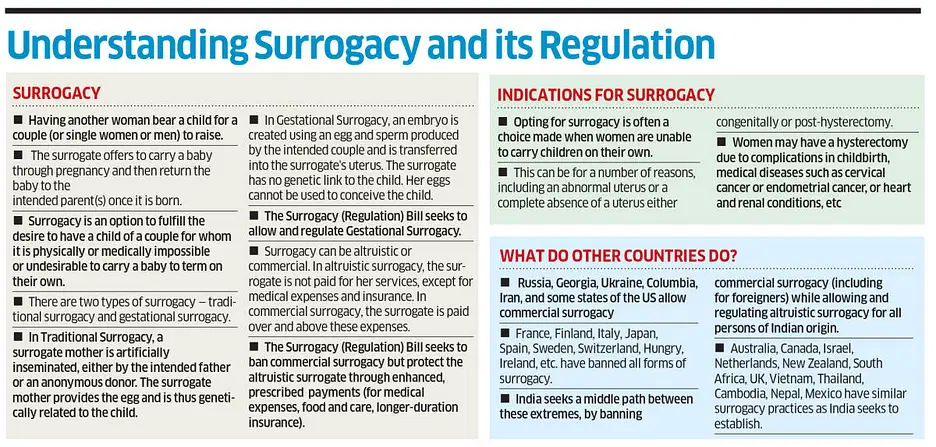No Legal Right on Child for Sperm/Egg Donors | 16 Aug 2024
Recently, The Bombay High Court ruled that a sperm or egg donor does not have legal rights over a child and cannot claim to be the biological parent.
- Surrogacy is an arrangement in which a woman (the surrogate) agrees to carry and give birth to a child on behalf of another person or couple (the intended parent/s).
- A surrogate, sometimes also called a gestational carrier, is a woman who conceives, carries and gives birth to a child for another person or couple (intended parent/s).
- Under the Surrogacy (Regulation) Act, 2021 a widow or divorcee aged 35-45 or a legally married couple can avail of surrogacy if they have a medical condition necessitating this option.
- The intended couple shall be legally married for at least 5 years. Indian man aged 26-55 years and a woman aged 25-50 years, who have no previous biological, adopted, or surrogate child.
- It also bans commercial surrogacy, which is punishable with a jail term of 10 years and a fine of up to Rs 10 lakhs.
- The law permits only altruistic surrogacy, where no money is exchanged, and the surrogate mother must be genetically related to the intended parents.
- Upon birth, the child is legally recognised as the biological child of the intended couple.
Read more: Assisted Reproductive Technology

